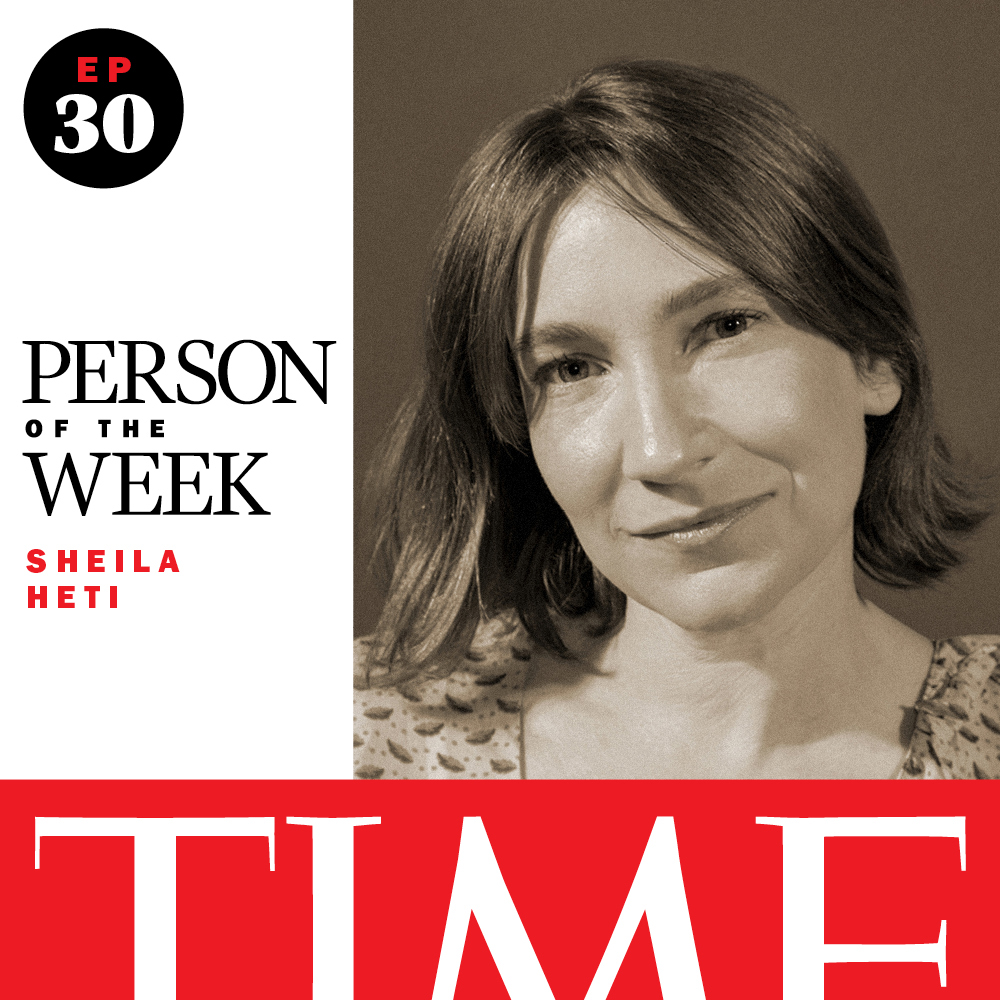Sheila Heti is the kind of author who translates the unique anxieties of being alive into the kind of books that feel like they were written from inside your own head.
Her 2012 novel, How Should a Person Be, became a cult classic for capturing the unique anxieties of the moment. This book has lived rent-free in my head for more than a decade because of the way it crystalizes how so many young women think about themselves in comparison to others.
She’s also the author of 10 other books, including Women in Clothes, Pure Colour, and Motherhood, which was chosen as one of the best books of 2018 by the New York Times and New York Magazine. In her latest book, Alphabetical Diaries, she disrupts the standard linear narrative of her life by taking the sentences of her diaries and rearranging them in alphabetical order.
She’s experimented with deconstructing the standard novel, expanding the landscape of autobiographical fiction, and even writing with AI as her muse. And each of these novels really represents a chapter in Sheila Heti’s lifelong exploration of what really makes humans who they are.
Tune in every Thursday, and join us as we continue to explore the minds that shape our world. You can listen to the full episode in the player above, but here are a handful of excerpts from our conversation, which have been condensed and edited for clarity.
On how she thinks of autobiographical fiction as a form of inquiry:
By the time a book is published I don’t really feel like I’m revealing anything about myself.
Usually with my books I’m trying to figure something out. I’m trying to answer a question or trying to get to the other side of a question and I use my life and my real thoughts as the material for that question, but I don’t think that I’m exactly using my personality. So I don’t really think that I’m telling anybody anything about myself or my life. I’m more just using myself as an example of a human in this situation…
So it doesn’t feel like diaristic exactly. It just feels like a thinking through of a question in the form of a character that is similar to me but not quite me.
On what she learned from alphabetizing her journals for her latest book, Alphabetical Diaries:
One of the things that I learned writing Alphabetical Diaries was how static the self is. You know, it’s like 10 years of my diaries in alphabetical order. And so you begin looking at yourself as a series of themes that repeat and a series of preoccupations that repeat and thoughts that repeat. And it just seems like that’s what oneself is, more than progress.
That’s not to say that there’s no progress and there’s no growth, but maybe not because one’s deliberately trying to grow. And maybe it doesn’t happen as quickly as we think or as dramatically as we think…
I think that at first when I kind of started to notice that, it felt really depressing. A person wants to be kaleidoscopic, you kind of want to be every person and have every mind. And then after a while, it just kind of became a relief, like: you’re the Sheila robot.
And then if that’s the case, then maybe the task of life is not continual change and continual improvement, but a kind of acceptance of well, I was born as this creature, and I am this creature, and I find it kind of relieving, actually. Like, I have my characteristic thoughts, and I have my characteristic actions, and I have the sort of moves that I can make, and there are certain moves I can’t make.
On her approach to discipline and creativity:
I’m really not a very disciplined person. I can’t keep any sort of schedule. I don’t have any kind of routine. I know people that can do that, but it’s a very different type of character. Things for me need to be genuinely interesting for me to do them. I can’t just do them because I’m forcing myself to.
If I try to put something in place, I’ll just end up rebelling against myself. So I have to really deliberately not put anything in place. I’m usually working on several projects at once. So there’s always something that I feel like doing that day.
So if I have like three or four projects on the go and they all involve different kinds of thinking, then, likely in any given day, there’s one of those four types of thinking I’ll be interested in.
Whereas if it’s just one book, then there’s going to be weeks that go by where I don’t have the appetite for that kind of thinking.And, and so I’m not really disciplined. I just do a lot at the same time…
You have to figure out who you actually are and then, given who you are, how are you going to make work from the person that you actually are? Rather than being like: Well, I’m going to wait until I’m an extremely disciplined person to write a book. Well, you’re never going to become this person that you’re not. So how does an extremely, let’s say scatterbrained and lazy person write a book? Or how does a person that hates working write a book? You know, there’s got to be a way.
There’s as many ways to write a book as there are people. I think I always knew that I wasn’t a disciplined person, so I never tried to put discipline into my life. My discipline was when you feel like writing, you should write. And that was something I could follow because there were times when I would really feel like writing. And so I just said to myself: don’t miss those times.
- Cybersecurity Experts Are Sounding the Alarm on DOGE
- Meet the 2025 Women of the Year
- The Harsh Truth About Disability Inclusion
- Why Do More Young Adults Have Cancer?
- Colman Domingo Leads With Radical Love
- How to Get Better at Doing Things Alone
- Michelle Zauner Stares Down the Darkness


